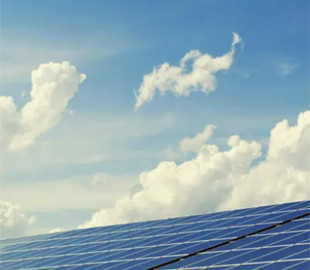
Solar panels are one of the most popular sources of renewable energy . However, the panels do not absorb most of the sun's rays. Therefore, scientists began to increase their efficiency.
Scientists from South Korea managed to achieve the result. About how it was possible to increase the efficiency of solar panels – says 24 Kanal with reference to Advanced Materials magazine.
200% Deposit Bonus up to €3,000 180% First Deposit Bonus up to $20,000What scientists suggest
Because the absorption spectrum of existing perovskite solar cells is limited to the visible region of light with a wavelength of 850 nanometers, the panels are unable to use 52% of all solar energy. Therefore, South Korean scientists developed a technology that increased the ability to capture light in the near-infrared spectrum, which increases the efficiency of solar panels.
The research team of Professor Jung-Eun Lee from the Korea Leading Institute of Science and Technology and Professor Woojae Kim from the University's Department of Chemistry Ense has invented a solar cell capable of absorbing radiation up to the near-infrared range. by combining organic photo-semiconductors and perovskite materials.
Thanks to this, the power conversion efficiency of the hybrid device increased from 20.4% to 24.0%, as compared to the old technology.
Researchers predict that their findings can become the basis for the creation of solar panels of a new generation, which will have a significant impact on renewable energy.

